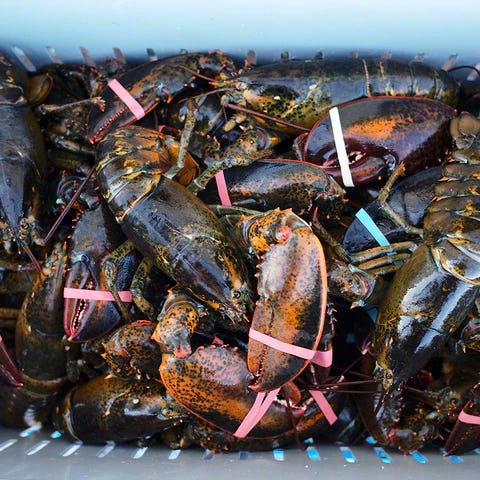A side project I’ve been working on the last few years is a cycle of poems about my early and indelible experiences as a blue collar wage earner (via fast food and many years in the restaurant industry). Thursday’s poem and today’s are both taken from this manuscript, and a handful of others are forthcoming (this one, entitled “Short Timers,” was published in August and is also included in the manuscript). It’s always incredible to recall how hard this job was, how little I got paid, and how much I loved it. As I say, early and indelible experiences.
*Again, my gratitude to The Good Men Project for publishing my work (archive of poems, fiction, and non-fiction here).
Hiroshima
The beef and bird are dead-on-arrival, already processed and packaged directly for the grill or a deep fryer. Everything else ends up at the steam station—which, because we were young, because we were dumb, because we could, we called Hiroshima—and is kept alive at all costs. The oysters, mussels, shrimp, and scallops require hands-on cruelty when it’s time for them to sacrifice themselves on the altar of the restaurant industry, playing their supporting roles in the movie called “The Customer Is Always Right”. Hiroshima was neither as busy nor important as the Sauté or Dessert/Salad stations, which is why teenage busboys looking for more hours could end up there, making half what they would in tips on the floor while getting valuable insights on the different shades of blue collar. The only cumbersome task was preparing the occasional raw bar order, which involves prying open bivalves; the harder it is, the fresher they are, the more they’re fighting you not to die. It’s generally better not to contemplate this, focusing instead on matters of evolution, the fittest surviving, and the advantage of thumbs. Lobsters, the most intelligent—or at least anthropomorphic—items on the menu, present different challenges and are therefore dismissed with dark humor, hence Hiroshima. You hold your prize in one hand, having selected it from a cardboard box filled with sluggish specimens, all carefully weighed and covered with crushed ice, then drop it into the metal pot, like a magician pulling a rabbit from a hat in reverse. The thrashing begins even before you close the lid and flip the switch, and here it’s helpful to recall a chef who once explained these things are nothing more than cockroaches that live underwater, that they’d pinch us if they didn’t have rubber bands around their claws, that they attack each other in tanks, that if they had a chance they’d drag us to the bottom of the ocean where no one could hear us scream.





